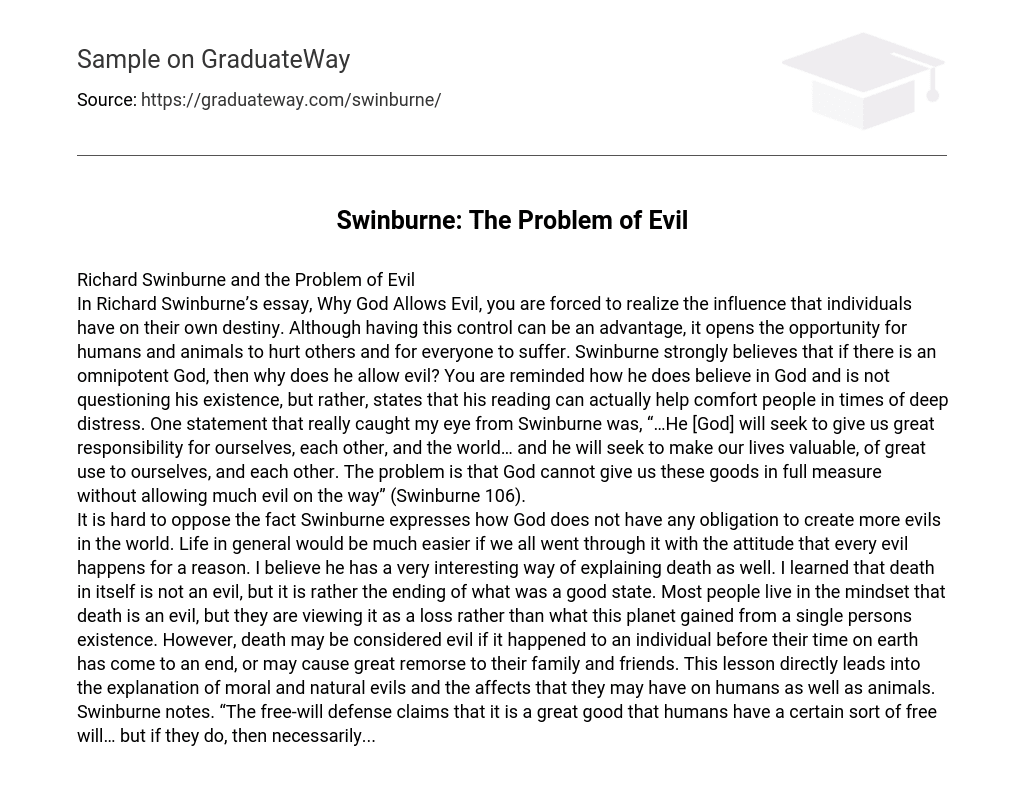Richard Swinburne and the Problem of Evil In Richard Swinburne’s essay, Why God Allows Evil, you are forced to realize the influence that individuals have on their own destiny. Although having this control can be an advantage, it opens the opportunity for humans and animals to hurt others and for everyone to suffer.
Swinburne strongly believes that if there is an omnipotent God, then why does he allow evil? You are reminded how he does believe in God and is not questioning his existence, but rather, states that his reading can actually help comfort people in times of deep distress. One statement that really caught my eye from Swinburne was, “…He [God] will seek to give us great responsibility for ourselves, each other, and the world… and he will seek to make our lives valuable, of great use to ourselves, and each other. The problem is that God cannot give us these goods in full measure without allowing much evil on the way” (Swinburne 106). It is hard to oppose the fact Swinburne expresses how God does not have any obligation to create more evils in the world.
Life in general would be much easier if we all went through it with the attitude that every evil happens for a reason. I believe he has a very interesting way of explaining death as well. I learned that death in itself is not an evil, but it is rather the ending of what was a good state. Most people live in the mindset that death is an evil, but they are viewing it as a loss rather than what this planet gained from a single persons existence. However, death may be considered evil if it happened to an individual before their time on earth has come to an end, or may cause great remorse to their family and friends.
This lesson directly leads into the explanation of moral and natural evils and the affects that they may have on humans as well as animals. Swinburne notes. “The free-will defense claims that it is a great good that humans have a certain sort of free will… but if they do, then necessarily…





